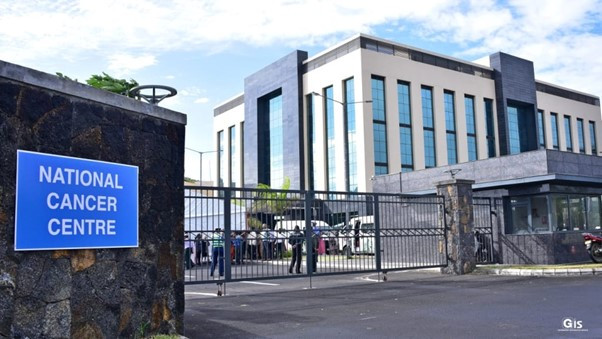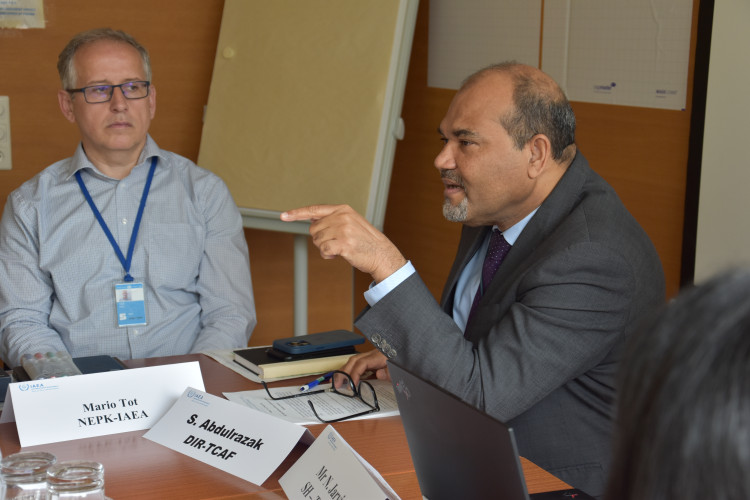Women energy experts from 11 countries in Africa have received specialised training on energy planning from the IAEA to empower them to create sustainable energy policies.
Decisions on energy demand and supply infrastructure need to involve all stakeholders, consider all possible energy options, and be consistent with sustainable development goals and often use complex modelling tools. However, many countries lack robust long-term energy planning capacity, which can result in short-term and more expensive solutions. The IAEA helps member countries, such as these in Africa, develop capacity to chart out their own energy strategies, including whether or not to include nuclear energy.
The course, Train the Trainers Course on Energy System Analysis and Use of the IAEA's Tools, allowed participants to enhance their skills in the use of the IAEA's MESSAGE energy planning tool. This designs long term energy plans and assesses costs, security, and environmental impacts to guide smart, sustainable energy strategies.
The newly trained experts will strengthen the capacity of African energy institutions in energy planning and support the development of energy policies and strategies tailored to meet the diverse needs of African nations.
"The training served as a platform for networking, knowledge exchange, and benchmarking among women professionals from diverse backgrounds within the energy sector," said Elisabeth Amalaman, a participant from Ivory Coast. "I can use the MESSAGE tool to calculate energy demands and supply and implement the government policy on energy," she said. The participants also learned about other tools such as the Energy Balance Studio (EBS) methodology for compiling energy data and balances, and the Model for Analysis of Energy Demand (MAED). The IAEA offers targeted energy planning tools that are used by over 135 countries and 20 international organizations.
"In our journey towards achieving global energy goals, it is imperative that we create spaces for women to excel and lead," said Wei Huang, Director of the IAEA's Division of Planning, Information and Knowledge Management. "Providing women with access and expertise enhances their technical capacities and amplifies their voices. Empowering women through specialised training in energy systems not only bridges the gender gap in the nuclear and energy sector but also symbolises the IAEA's commitment to fostering an inclusive environment where diverse perspectives lead to innovative approaches in tackling global energy challenges," Huang highlighted.
"In our journey towards achieving global energy goals, it is imperative that we create spaces for women to excel and lead,"

Participants during the training (Photo: J. O'Brien/IAEA)
"I am happy to see the IAEA dedicating itself to bringing capacity to women," said Felister Nabwire Mukuri, from Kenya. "Training like MESSAGE ensures that we have a balanced field of experts, with both male and female professionals who can go and plough back in their country and the continent."
"Among the strategies we embrace is to build on a pool of African experts that would self-sustain the transfer of nuclear science and technologies. This applies to the energy planning field," said Shaukat Abdulrazak, Director of the IAEA Department of Technical Cooperation's Division for Africa. "We hope that the participants will emerge as pioneering figures in their countries, driving sustainable energy solutions and inspiring future generations of women to break barriers and excel in the field of energy systems," he said.
Essia Znouda from Tunisia noted, "This training is important as it provides the necessary technical skills for women to participate in decision-making processes, especially seeing that in most countries, especially in Africa, women do not have such access."
The IAEA contributed as a modelling partner at a continental level, together with the International Renewable Energy Agency, to developing the African Continental Power Master Plan led by the African Union Development Agency AUDA-NEPAD in 2023. During the recent African Union Summit in Addis Ababa, this plan, which aims to establish the African Single Electricity Market (AfSEM), was endorsed by the African Heads of State as the flagship programme under Agenda 2063.
The training course was held in March under the umbrella of a regional technical cooperation project for Africa and brought together participants from 11 Member States: Burundi, Cameroon, Côte d'Ivoire, Djibouti, Egypt, Eswatini, Ethiopia, Kenya, Morocco, Tunisia and Zimbabwe.

Shaukat Abdulrazak, IAEA Director of the Department of Technical Cooperation's Division for Africa (Photo: J. O'Brien/IAEA)






